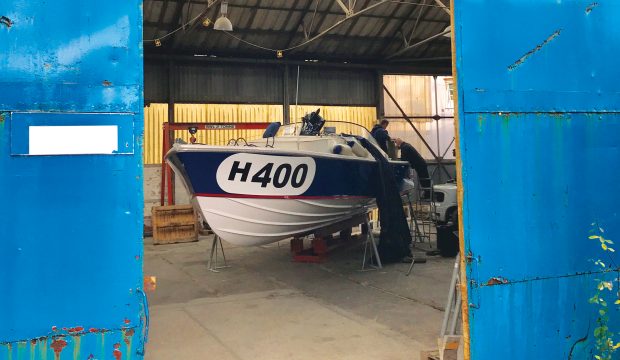The RYA's powerboat racing review has concluded that the boating organisation should separate itself from the operational delivery of the sport
Powerboat racing clubs will no longer be covered by the RYA’s public liability insurance from January 2016 onwards, after a wide-ranging review of the sport was concluded.
The boating organisation commissioned the powerboat racing review in July after the civil case of Ridd vs. RYA resulted in the high court granting damages of £5.5m to former powerboat racer Ben Ridd.
In its review, the RYA found that only 1% of its members listed powerboat racing as their primary boating interest, making it a particularly niche area of boating.
As a result, the report concludes: “The RYA should take a number of steps to separate itself from the operational delivery of the sport and instead focus on safety, training and standards of performance.”
Insurance concerns
The most prominent issue surrounds insurance for powerboat racing events, which was previously supplied by the RYA with the costs recouped via club fees.
From January 1 2016 onwards, clubs will be able to negotiate their own public liability insurance directly with suppliers Arthur J Gallagher, using a template policy drawn up by the RYA.
The new system is similar to the one currently in place for sailing races, a spokesperson from the RYA added.
What’s more, the RYA will no longer be issuing offshore race approval; instead each organising club will be responsible for ensuring that their races comply with the RYA’s rules.
However, the RYA was keen to stress that it does not intend to pull out of powerboat racing altogether, since only 6% of this who responded to its pre-review survey proposed this drastic course of action.
“The reputational damage to the RYA of being seen to walk away from powerboat racing will be worse than the present low-grade guerrilla war of words,” the report added.
Impact on clubs
Powerboat racing in the UK has been in gradual decline since the 1980s, with only 300 race licence holders in August 2015, compared with 477 in 2006, according to the RYA’s figures.
What’s more there are 7 circuit racing clubs and 43 offshore racing clubs across the country at present, most of which are currently inactive.
Robert Wicks, chief operating officer at Powerboat P1, told MBY: “It’s a fairly fundamental change in the way the RYA intends to move forward, but we’re optimistic.
“Hopefully the restructuring will streamline the sport and remove a lot of the bureaucracy that has hampered us for a number of years. I think the review was long overdue; we welcome a little bit more autonomy from the RYA.
“But there are a lot of unknowns – can the grassroots clubs fund their own insurance? I hope this isn’t the death knell for the lower echelons of the sport. I think this will have some far-reaching implications for powerboat racing.”
Aidan Foley, event director of the Venture Cup, added: “The necessary reinvigoration of our sport needs to come from the bottom-up and this largely provides the tools for doing so.
“We broadly welcome the findings and outcomes of the report. Overall it would appear that the RYA have looked at best practice and sought to apply them appropriately.
“There may be some concerns about how these changes might impact on some areas of the sport, but the sport needs radical change in any case, and can’t be allowed to further deplete itself.”
Meanwhile, Fiona Pascoe from Thundercat Racing said: “We are delighted that we have the opportunity to seek our own insurance; embracing the freedom and reassurance to be the masters of our own destiny.”
She added that Thundercat has seen a significant rise in participation during 2015, from 17 to 29 teams.
However, veteran racing journalist Ray Bulman sees the potential for many problems arising from the decentralisation.
“While these new proposals are unlikely to have a serious affect on inland circuit racing, held over dedicated courses on closed rivers and lakes, offshore competition on public waters could be facing several problems.
“Clubs will now be responsible for approving their own race courses. This could mean the RYA no longer sending impartial observers to events to ensure everything is up to standard.
“If so mistakes could pass unnoticed which would be a worrying aspect for any underwriter,” Ray adds.
“While a club’s ability to find sufficient level of insurance cover may not always be easy, permission to use coastal waters inside the 12 mile limit may prove a far greater hurdle.”
In financial terms, powerboat racing in the UK makes a net loss of around £90,000 per year, and since each licenced racer gets free RYA membership, it creates an opportunity loss of £15,000 per year for the boating organisation.
The report admits that there is no alternative national governing body that could entirely take over all of the RYA’s responsibilities, and even if there was it would struggle to justify the financial sustainability of powerboat racing as a loss-making sport.
The results of the report come in the same week that the RYA announced that it would be launching an annual powerboat racing awards ceremony, the first of which will take place in February 2016.












